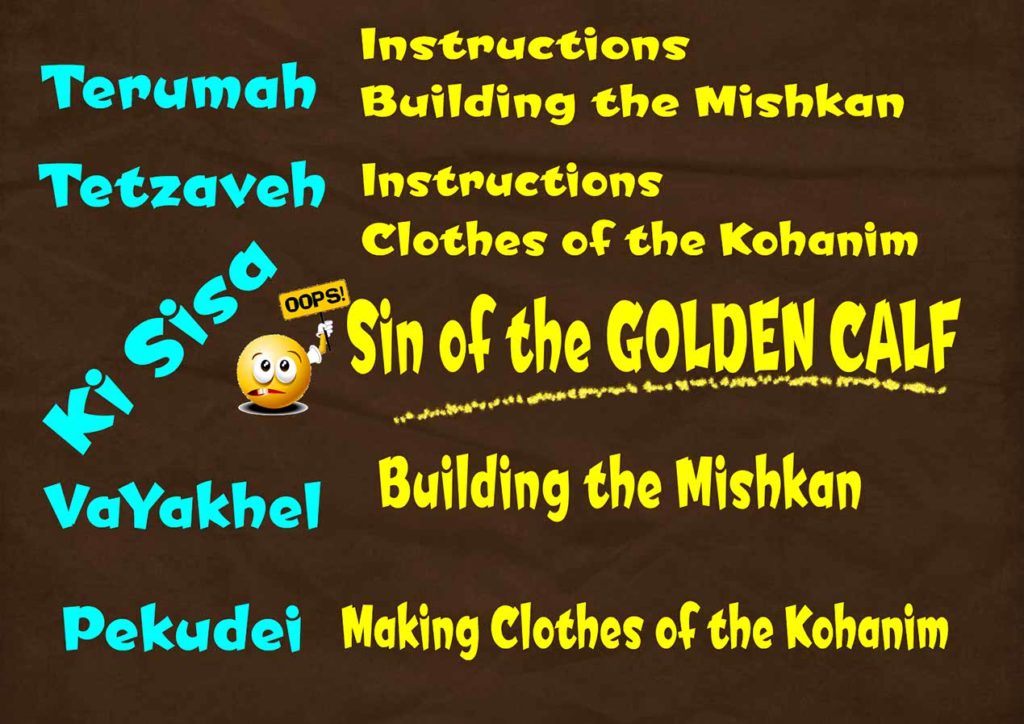Unconfusing Confusion

The first Parshiyos of the book of Shemos told us absolutely amazing stories about the Jewish people, from slavery to redemption. The first four Parshiyos, Shmos, VaEira, Bo, and Beshalach, were filled with action, suspense, and breathtaking miracles. Then came the dramatic giving of the Torah in Parshas Yisro and plenty of detailed laws in Parshas Mishpatim.
We now encounter the final 5 Parshiyos of the book of Shemos, and surprisingly, every single Parsha talks about the Mishkan! With all the Mishkan’s many intricate details it could become very confusing. So to “unconfuse” things, here is a general overview of the upcoming Parshiyos.
Parshas Terumah – HaShem gives Moshe all the details about the construction of the Mishkan and all its “furniture.”
Parshas Tetzaveh – HaShem tells Moshe how his special workers, the Kohanim, should be dressed when they work in the Mishkan.
Parshas Ki Sisa – This Parsha continues with more details about the Mishkan, but then dedicates much of the Parsha to the tragic story of the Golden Calf. Surprisingly, this story happened before Parshas Terumah and Parshas Tetzaveh.
Parshas VaYakhel – Think of this Parsha as sort of a repeat of Parshas Terumah. Moshe repeated to Bnei Yisrael HaShem’s instructions on how to build the Mishkan, and the Torah describes in great detail how they carried out their mission.
Parshas Pekudei – Now, think of this Parsha as a repeat of Parshas Tetzaveh. Moshe described to Bnei Yisrael the special clothes of the Kohanim, and the Torah tells us exactly how they made the clothes, down to the very last thread.
What’s fascinating about all this is that the Torah could have condensed Parshas VaYakhel and Pekudei into just one Pasuk! That Pasuk could have looked something like this: “And Moshe instructed Bnei Yisrael all that HaShem commanded him, and they did it.”
It’s a great question but the answer is even better. This only goes to show how great HaShem’s love of Bnei Yisrael is. When you love something you never get tired of talking about it. We will discuss this more in the beginning of Parshas Vayakhel, under the title, “Sooooo Loooong?”

